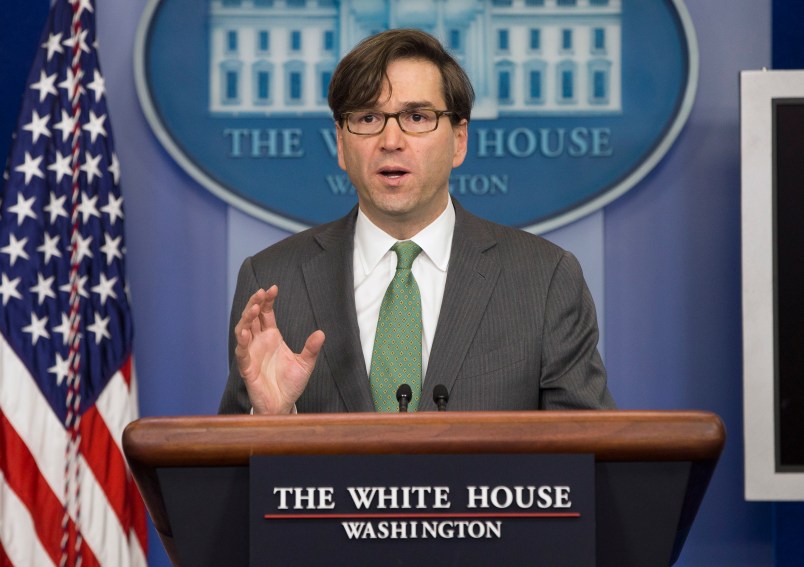The White House’s top economist moved to dispute a Congressional Budget Office finding on Tuesday that raising the federal minimum wage to $10.10 per hour could cost up to 500,000 jobs once implemented in the second half of 2016.
“[The CBO finding] does not reflect the consensus view of economists who have said the minimum wage would have little to no impact on employment,” Jason Furman, the chairman of the White House Council of Economic Advisers (CEA), told reporters on a conference call. “It goes outside the consensus view of economists when it comes to the impact of the minimum wage on employment.”
Furman voiced “respectful disagreement” with CBO, pointing to other studies, which he listed in a blog post on the White House’s web site, that say a minimum wage increase wouldn’t cost jobs. They include a poll of economists conducted by the University of Chicago Booth School of Business and a study by economists at the Federal Reserve Bank of Chicago.
“Our view is that ‘zero’ is a perfectly reasonable estimate of the impact of the minimum wage on employment, based on research that began with David Card and Alan Krueger comparing minimum wage effects on employment,” he said, calling that a “completely reasonable” estimate based on the “highest-quality studies” on the issue.
Furman wouldn’t say how high the federal minimum wage needs to go before it starts to harm employment, but said $10.10 per hour is “within the range” of levels that won’t cost jobs. He pointed to other effects of raising the wage, such as a more productive workforce and better worker retention among employers.
President Barack Obama’s top economist didn’t directly criticize CBO, the official nonpartisan scorekeeper for Congress.
“I don’t think this is CEA versus CBO,” Furman said.
He stressed the CBO statistics in the same report Tuesday that a wage hike would give 16.5 million workers a pay raise and lift 900,000 Americans out of poverty. He said those findings were “essentially confirming the consensus view” among economists with regard to the impacts of a minimum wage increase.
In response to Furman’s remarks, House Speaker John Boehner’s (R-OH) office circulated a 2006 paper by economists David Neumark and William Wascher which surveys close to 100 relevant studies and finds that “nearly two-thirds give a relatively consistent (although by no means always statistically significant) indication of negative employment effects of minimum wages.”
This article has been updated.






